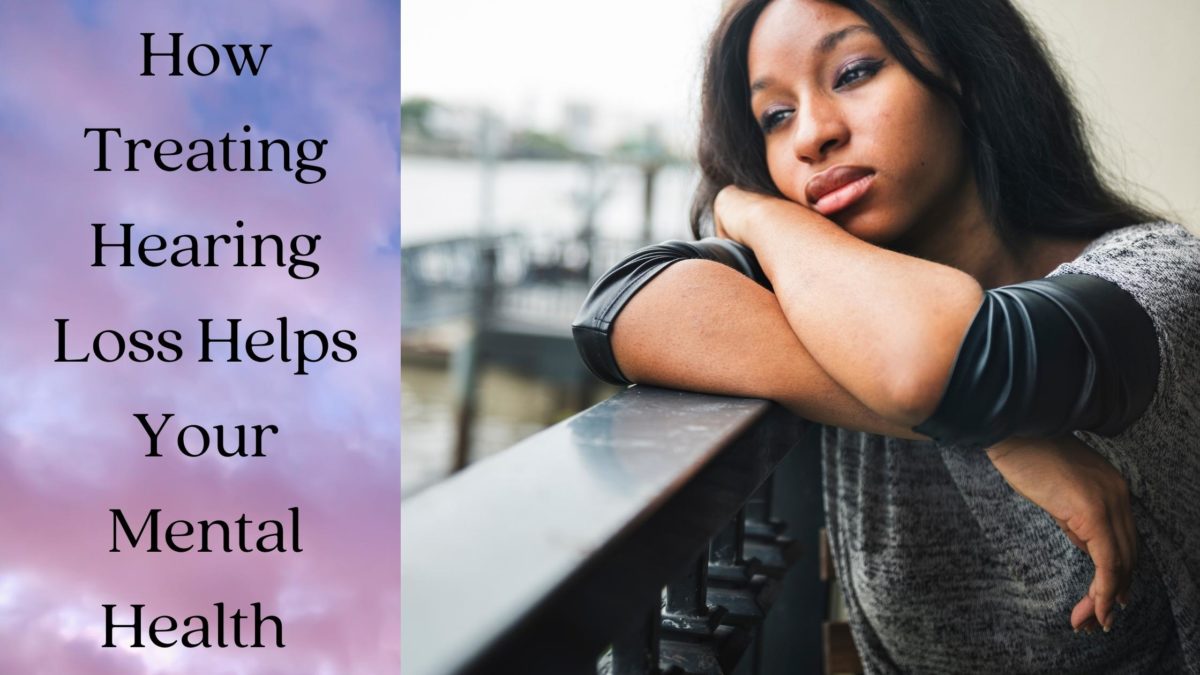Many go on for years, believing that their hearing loss is not a serious issue. The problem, however, is that while you hear with your ears you process and listen with your brain. When your brain can not receive important audio information about conversations, and the world around you, the effects can become more serious than we may have first believed. Relationships become strained affecting home life and your professional career. Your hobbies become more difficult to pursue and it’s harder to stay active and mobile on your own. Ultimately, hearing loss is a quality of life issue and when it is ignored, your mental health is at stake.
Hearing Loss and Mental Health
While hearing loss affects one in three people over 65 and half of those over 75, it is not a condition that only affects the elderly. In fact, a 2014 study found that those most at risk of developing mental health concerns along with their untreated hearing loss were adults between 18 and 69. It is estimated that in the United States, nearly 1 in 8 people suffer from hearing loss and this number is only projected to rise within the next 30 years. With this rise is expected higher instances of depression, anxiety and social isolation due to strain and struggle following conversation and connecting to peers and family.
Another study from Italy explored the effects of depression and anxiety in connection to hearing loss. The study collected data on a demographic of people between 35 and 55 with and without hearing loss. The findings confirmed the previous study; those who had untreated hearing loss, even a mild case, were far more likely to report anxiety or interpersonal problems and were at an increased risk for mental health issues.
The Importance of Early Detection
The most important step you can take to protect your mental health is having your hearing tested. This is something that should be done annually, no matter your age. hearing loss affects those of all ages and as stated earlier, even a mild case of hearing loss can already start to impact mental and emotional health. The importance of testing even if you do not suspect you have a hearing issue is important. All too often people don’t even know they have an issue because hearing loss often develops gradually. You may have not noticed as certain sounds and tones have slipped away from your perception. However, just because you’re not aware does not mean that it is not affecting your mood, relationships and ability to access joy.
Protect Your Mental Health
The beauty of a hearing test is that once you know the extent of your hearing loss, you can treat it. In most cases hearing loss is irreversible but the effects on mental health can be circumvented with the use of assistive listening devices, such as hearing aids and cochlear implants. These amazing devices fit in or around the ear and amply sound, so you can connect and follow conversations with the people in your life. Researchers have found that those who use hearing aids report regaining emotional stability in their lives, having more social interactions, a stronger community of friends, improved relationships through great communication, and fewer depressive symptoms. When you hear clearly you can regain self-confidence and a greater sense of independence. This allows you to stay active and healthy for years to come.
Schedule a Hearing Test with Us
Have you been struggling with mental health and suspect it could be tied to an undressed hearing loss? The sooner you schedule a hearing test, the sooner you can know and treat the issue. Many hearing aids are designed for your modern lifestyle, meaning they have the potential to interact with your Smartphones, connect wirelessly to your TV and can make it easier to hear in noise and in the great outdoors. Whatever it is that makes you happy and brings you joy, it will be easier to attain when you can hear clearly with hearing aids. Call today to schedule a hearing test and get in control of your mental health.

